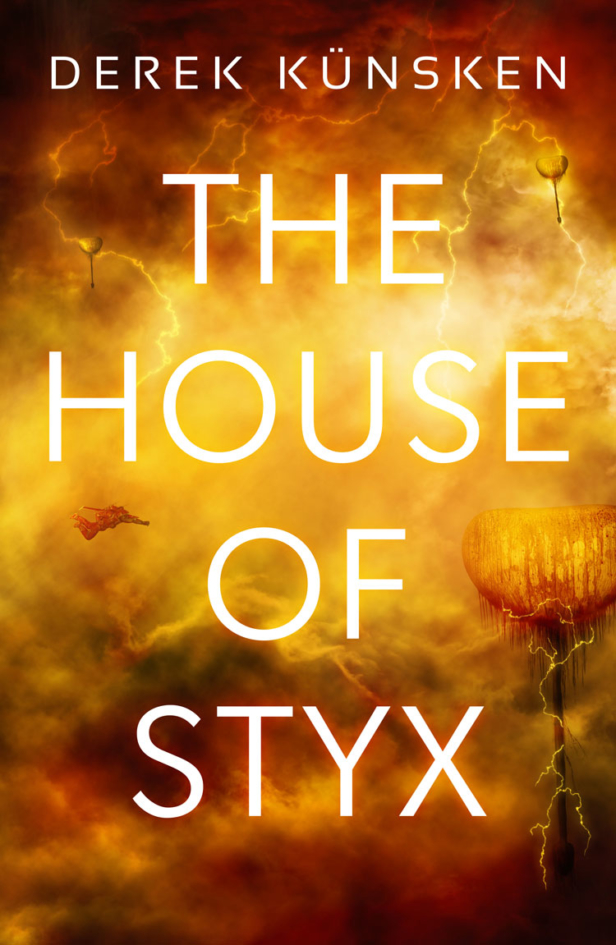For some reason, I think a lot about choices. We have access to some choices, and others we don’t. As early as grade three I remember wondering with a little frisson of unease of what my life would have been like if I’d been born elsewhere, to some other set of circumstances or even parents.
My parents met while my dad was visiting Quebec city for the winter festival with his best friend. In all that crowd, my parents met. It occurred to even at a young age that if anyone involved had decided to stop for a hot cider or caramel corn, or to ponder an ice sculpture thirty seconds longer, I as I am now wouldn’t exist. Everything I start with is entirely contingent on that chance meeting. In the bigger picture, my father immigrated to Canada from Germany as a teenager. My grandmother might have chosen not to immigrate and then whoever I might have been would have been raised in a different language and culture (either German or French).
Writers are told to explore what you don’t know, to probe at questions that you haven’t found the answers to. I explored some of these themes in The Quantum Magician. In that world, for various reasons, some populations of humanity have been engineered into new sub-species, with their own environments and genes separating them from mainline humanity. Some of the new choice sets they have are frightening and shrunken; those new choice sets were a big part of that novel.
But I guess I hadn’t finished working through this set of concerns, because I think I went there again in my new novel The House of Styx. It’s not a perfect analogy, but I’ve taken to describing the novel as The Godfather in a colony in the clouds of Venus. It is a family saga, set in the same universe as The Quantum Magician, but takes place 250 years before the events there. It intimately concerns the choices of a family that will have implications that set up the political and economic systems foregrounded and backgrounded in The Quantum Magician.
Immigration snuck in there too, because immigration isn’t just a traumatic experience in and of itself, it sets up the choices immigrant children and grandchildren will have. The choices of parents and grandparents affecting us will be much more potent once we start to colonize other parts of the solar system. On Earth, immigration is mostly reversible. If it really sucks where you’ve gone, you can in many situations go home. But if you emigrate to the asteroids, or Mars, or Venus, coming back to Earth is prohibitively expensive, and probably dangerous. A little like Vito Corleone’s immigrant story in The Godfather.
And if you’ve made a one-way trip, for you and all your descendants, you and they will be stuck with a set of new choices. Venus might have spectacular beauty in the clouds, but to survive there (or the asteroids or Mars), colonists would have to convert to an entirely indoor lifestyle, punctuated by visits outside wrapped in survival suits. I thought of what it might be like to not only never be able to touch a tree, but to never even see one, to not know the various colours of green the leaves take on.
That seemed like a lot to give up and I wondered what those new sets of choices might feel like, what sorts of environmental dissonances might be impacting people who couldn’t even really see the ground. Venus is too hot on the surface, even though spot in the clouds are a perfect temperature and pressure for humans.
When looking at choices and contingency, one of the interesting things about The Godfather was that Vito didn’t originally live a criminal life. He was working in the grocery shop and it was an external pressure, the arrival of Don Fanucci, that forced Vito Corleone to become a murderer. In The House of Styx I wanted a similar element, something that would drive the young patriarch George-Étienne D’Aquillon to forsake society.
In the case of a Venusian colony, it wasn’t hard to imagine circumstances of poverty that would have officials rationing resources, and even insisting to parents that they abort their Downs Syndrome child. George-Étienne and Jean-Manse refuse to abort their first child and leave behind the colony and its dirigibles floating at 65 kilometers above the surface. They raise their family as the inhabitants of the acidic clouds between 45 and 58 kilometers, living inside the buoyant Venusian plant life. This is a historical parallel to the early woodsmen of New France, the coureurs de bois, except here the runners in the woods become the runner on the winds, the coureurs des vents.
The decision by George-Étienne and Jeanne-Manse creates a restricted set of decisions and opportunities that few others in the colonies have, and that’s what gets explored science fictionally in the novel when they discover a storm on the Venusian surface that shouldn’t be there.
The House of Styx by Derek Künsken is out in eBook and audio 20 August, and hardback April 2021.
